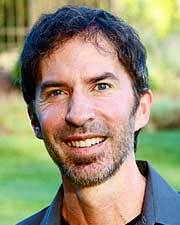Stephen S. Ilardi
* Note: these are all the books on Goodreads for this author. To add more, click here.
“I believe many of us now live as if we value things more than people. In America, we spend more time than ever at work, and we earn more money than any generation in history, but we spend less and less time with our loved ones as a result. Likewise, many of us barely think twice about severing close ties with friends and family to move halfway across the country in pursuit of career advancement. We buy exorbitant houses—the square footage of the average American home has more than doubled in the past generation—but increasingly we use them only to retreat from the world. And even within the home-as-refuge, sealed off from the broader community “out there,” each member of the household can often be found sitting alone in front of his or her own private screen—exchanging time with loved ones for time with a bright, shiny object instead. Now, I’m not saying that any of us—if asked—would claim to value things more than people. Nor would we say that our loved ones aren’t important to us. Of course they are. But many people now live as if achievement, career advancement, money, material possessions, entertainment, and status matter more. Unfortunately, such things don’t confer lasting happiness, nor do they protect us from depression. Loved ones do.”
― The Depression Cure: The 6-Step Program to Beat Depression without Drugs
― The Depression Cure: The 6-Step Program to Beat Depression without Drugs
“Among severely depressed patients—those whose symptoms are so profoundly disabling that they can no longer function at all—depression drugs have been found to work much better than placebos. Although most severely depressed patients aren’t completely cured by antidepressants, at least half of them will experience meaningful improvement within a month or two. By comparison, few such patients ever improve while taking a dummy pill.”
― The Depression Cure: The 6-Step Program to Beat Depression without Drugs
― The Depression Cure: The 6-Step Program to Beat Depression without Drugs
“You might imagine that an exercise regimen would have to be pretty grueling to be effective against depression. Maybe hours of running every day? Or some kind of strenuous weight lifting—the kind that makes people’s neck veins bulge? Incredibly, however, Blumenthal simply had his patients take a brisk half-hour walk three times a week. That’s it. And yet this remarkably low “dose” of exercise proved to be more effective than the Zoloft.”
― The Depression Cure: The 6-Step Program to Beat Depression without Drugs
― The Depression Cure: The 6-Step Program to Beat Depression without Drugs
Is this you? Let us know. If not, help out and invite Stephen to Goodreads.





























